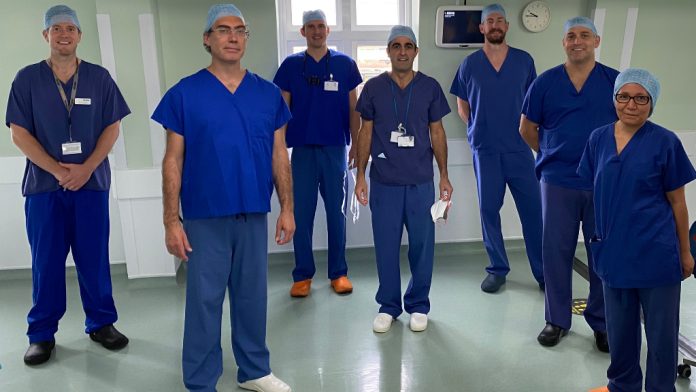
King Edward VII’s Hospital has introduced a pioneering breast surgery procedure for prevention of secondary breast cancer related lymphedema.
The hospital performed its first deep inferior epigastric artery perforator (DIEP) flap reconstruction in combination with lymphatic microsurgical healing approach (LYMPHA).
DIEP flap reconstruction is a type of breast reconstructive surgery where fat, skin, and blood vessels are transposed from the lower abdomen and moved up to the chest to rebuild the breast mound.
LYMPHA is a technical microsurgical procedure that needs close coordination between the oncologic surgeon and microsurgeon, as well as nursing support pre and post operatively.
Current clinical evidence shows that the innovative technique reduces the risk of secondary breast cancer related lymphedema, which remains a feared complication of breast cancer treatment, affecting around 1 in 5 people. For patients undergoing treatment, it offers a novel way to maintain a good quality of life.
For patients who have undergone a mastectomy it offers a lower risk of losing abdominal muscle strength and a shorter recovery time compared to transverse rectus abdominis flap procedures.
Kate Farrow, director of operations at King Edward VII’s Hospital, said: ‘Having successfully undertaken these procedures for patients as part of our dedicated support for the NHS during the coronavirus pandemic, we are delighted that a number of the outstanding team at Imperial College NHS Trust have since joined our team to offer the procedure privately.’







 ©2024 All rights reserved LaingBuisson
©2024 All rights reserved LaingBuisson 


